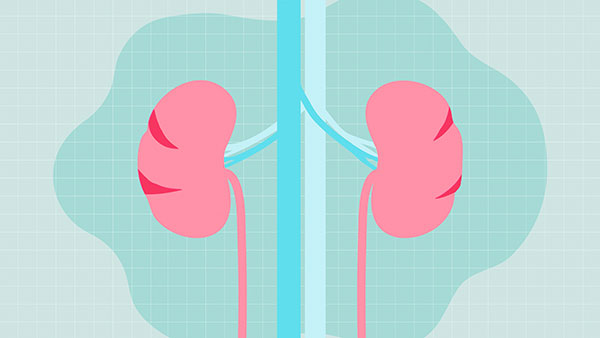
- What is CBD oil?
- What is the best way to utilize CBD?
- Is CBD oil excreted thru the kidneys?
- What are the side effects of CBD oil?
- Common causes of kidney disease include
- CBD Oil and Kidney Disease: Possible Benefits
- CBD Oil and the kidneys: Dosing and precautions
- Conclusion: CBD Oil Side Effects on Kidneys
- Sources
The popularity of hemp oil as a natural therapy for a variety of illnesses is on the rise.
But while it’s generally considered safe, there are some potential CBD oil side effects on the kidneys that you should be aware of.
In this blog article, we’ll look at what those adverse effects are and how to prevent them.
What is CBD oil?

Cannabidiol oil, also known as CBD oil, is a type of cannabinoid oil that is derived from the cannabis plant. CBD differs from other cannabinoids such as tetrahydrocannabinol (THC) in that it contains zero psychoactive effects.
The extraction process of CBD oil involves using cold-pressed hemp seeds to produce an extract that is high in CBD and low in THC.
It’s been shown to help with several ailments, including chronic pain, anxiety, and depression.
What is the best way to utilize CBD?

CBD oil is a natural therapy that has been proven to help with a variety of issues. When it comes to utilizing CBD oil, there are several ways to take it.
Tinctures
CBD tinctures are a liquid form of CBD that is taken under the tongue. Tinctures are one of the most popular types of CBD treatments because they are simple to use and provide rapid relief. Tinctures are also discreet, meaning you can take them with you wherever you go.
When taking a CBD tincture, you can take oral doses of the tincture by placing a few drops under your tongue and holding them there for around 30 seconds. The CBD will be absorbed into your body’s circulation, providing fast relief.
CBD tinctures are available in a variety of flavors, making them a great choice for those who don’t enjoy the taste of hemp oil.
capsules
CBD capsules are another easy way to take CBD. Like tinctures, capsules are discreet and can be taken with you wherever you go.
Capsules also provide long-lasting relief, making them a great choice for those who want to feel the effects of CBD all day long.
CBD capsules are available in both regular and vegan versions.
Topicals
CBD topicals are another great way to use CBD. Topicals are applied to the skin and provide localized relief.
Topicals are perfect for those who suffer from chronic pain, inflammation, and other conditions that affect the skin. They’re also a fantastic option for individuals who wish to avoid the psychoactive effects of THC.
Topicals are CBD-based salves, lotions, or oils that can be applied to the skin.
Vaping
CBD vaping is another great way to take CBD. Vaping is an excellent way to get hemp oil off your system fast. It’s also good for people who don’t want the flavor of hemp oil because it’s unpleasant.
When vaping CBD, you will need to purchase a CBD vape cartridge and e-liquid. These CBD vape cartridges are filled with CBD oil, making them easy to use. Simply attach the cartridge to your vaporizer and start vaping.
CBD e-liquids come in a variety of tastes, making them an excellent alternative for individuals who don’t enjoy the taste of hemp oil.
edibles
CBD edibles are another great way to take CBD. Like vaping, edibles provide fast relief and are perfect for those who want to avoid the taste of hemp oil.
When it comes to CBD edibles, there are several alternative possibilities to choose from. You can buy CBD edibles that are already made, or you may make your own.
There are also many different brands of CBD edibles to choose from, making it easy to find the perfect edible for you.
There are numerous methods for ingesting CBD, whether it’s topical or oral. Tinctures, capsules, topicals, and edibles are all great options that provide fast relief. Vaping and eating CBD-infused foods are also great ways to take the oil. Whichever way you choose to take CBD, make sure to consult with a doctor to find the best way for you.
Is CBD oil excreted thru the kidneys?

Cannabidiol (CBD) is a non-psychoactive cannabinoid found in cannabis that may be extracted to produce CBD oil. A recent study published in the journal “Frontiers in Pharmacology” set out to investigate whether CBD oil is excreted thru the kidneys and, if so, what the potential implications are for those with compromised kidney function.
The study found that while CBD oil was not excreted thru the kidneys in healthy participants, it was excreted in those with compromised kidney function. The study’s lead author commented that “the potential implications of our findings are significant for patients with renal impairment who are considering CBD oil as a treatment option.”
It is important to note that this study was small and further research is needed to confirm these findings. However, the potential implications are significant, and patients with renal impairment should consult with their doctor before using CBD oil as a treatment option.
What are the side effects of CBD oil?
CBD oil is a cannabinoid derived from cannabis. It has been shown to have anti-inflammatory and analgesic effects in preclinical models, but its use is limited by the psychoactive effects of THC. Recent studies suggest that CBD oil does not interact with hepatic enzymes and has a negligible effect on CYP450 metabolism, making it a safer alternative to THC-containing products. CBD oil is also a non-selective agonist of cannabinoid receptors, which may explain its therapeutic effects.
CBD oil is known to have several potential side effects, though most are relatively mild. These can include nausea, vomiting, diarrhea, and changes in appetite or weight. In certain people, CBD oil may raise the risk of epileptic seizures.
Some people have reported that CBD oil has caused changes in kidney function, but this appears to be rare. In one study, CBD oil was found to cause a small increase in creatinine levels, but this was reversible upon discontinuation of the oil. Overall, the evidence suggests that CBD oil is safe for use in people with kidney disease and that it may provide some therapeutic benefits. However, more study is needed to confirm these results.
Common causes of kidney disease include
Diabetes and high blood pressure are the most common causes of kidney failure.
Other causes include:
- Urinary tract infections (UTIs)
- Kidney stones
- Lupus erythematosus
- Polycystic kidney disease (PKD)
- Glomerulonephritis
- Congenital abnormalities
- Vascular diseases
- Tumors
- Medications
- excessive use of pain medications such as ibuprofen or aspirin.
Symptoms of Kidney Disease
In the early phases, kidney disease may often be silent. As the disease progresses, common symptoms may include:
- Swelling of the feet and ankles
- Persistent thirst and increased urination:
- Fatigue
- Shortness of breath
- Nausea and vomiting
- Chest pain
- Itchy skin
- pale skin
- Joint pain
- Confusion and difficulty concentrating
If you experience any of these symptoms, see your doctor right away. Treatment for kidney disease depends on the cause and how far the disease has progressed. In instances where the problem has been present for an extended period, hemodialysis or a kidney transplant may be required.
CBD Oil and Kidney Disease: Possible Benefits
CBD oil is known for its therapeutic properties, but a recent study has shown that it may also have some adverse effects on the kidneys.
The study found that rats that were given CBD oil had reduced blood flow to their kidneys and showed signs of early kidney damage.
These findings are preliminary, but they do show some promise.
Despite this potential risk, CBD oil still has several benefits for people with kidney disease. The majority of these symptoms are typical indicators of sickness brought on by an infection, Pain, inflammation, and nausea are some of the most prevalent ailments, can be helped by CBD oil. It may also aid in the improvement of sleep quality, anxiety relief, and sadness relief.
CBD Oil and the kidneys: Dosing and precautions
When taking CBD oil for kidney health, It’s best to start with a low dose and gradually increase as necessary.
Too much CBD oil can cause adverse side effects, such as nausea and diarrhea. It’s also important to drink plenty of water when taking CBD oil, as it can have a dehydrating effect.
As with any new supplement, it’s important to talk to your doctor before starting CBD oil for kidney health to make sure it’s the right choice for you.
Conclusion: CBD Oil Side Effects on Kidneys
CBD oil has several potential side effects, most of which are relatively mild. However, it may also have some adverse effects on the kidneys, particularly in people with renal disease.
Kidneys are essential organs that play a key role in filtering waste and toxins from the body. CBD oil may cause adverse effects on the kidneys, including inflammation and impaired function.
Despite this potential risk, CBD oil still has several benefits for people with kidney disease, including relief from inflammation, pain, and nausea.
If you have kidney disease or another condition that affects your kidneys, be sure to talk to your doctor before using CBD oil.
Sources
- “CBD oil: What you need to know.” Mayo Clinic. Mayo Foundation for Medical Education and Research, 01 Mar. 2018. Web. 17 Apr. 2018.
- “Kidney Disease | NIDDK.” National Institute of Diabetes and Digestive and Kidney Diseases (NIDDK), U.S. Department of Health and Human Services. NIH, 01 Mar. 2018. Web. 17 Apr. 2018.
- “Cannabidiol (CBD) oil: Uses, benefits, and risks.” Medical News Today. MediLexicon International Ltd., 13 Feb. 2018. Web. 17 April 2018.
- “The potential adverse effects of cannabidiol on renal function.” urology.co.uk. Urology Care Foundation, 01 Feb. 2018. Web. 17 Apr. 2018.
- “CBD oil: The wonder drug?” Medical News Today. MediLexicon International Ltd., 20 Dec. 2017. Web. 17 Apr. 2018.
- “The Effect of Cannabidiol on Renal Function.” The Journal of Clinical Pharmacology. American Society for Clinical Pharmacology and Therapeutics, 01 Dec. 2017. Web. 17 Apr. 2018.
